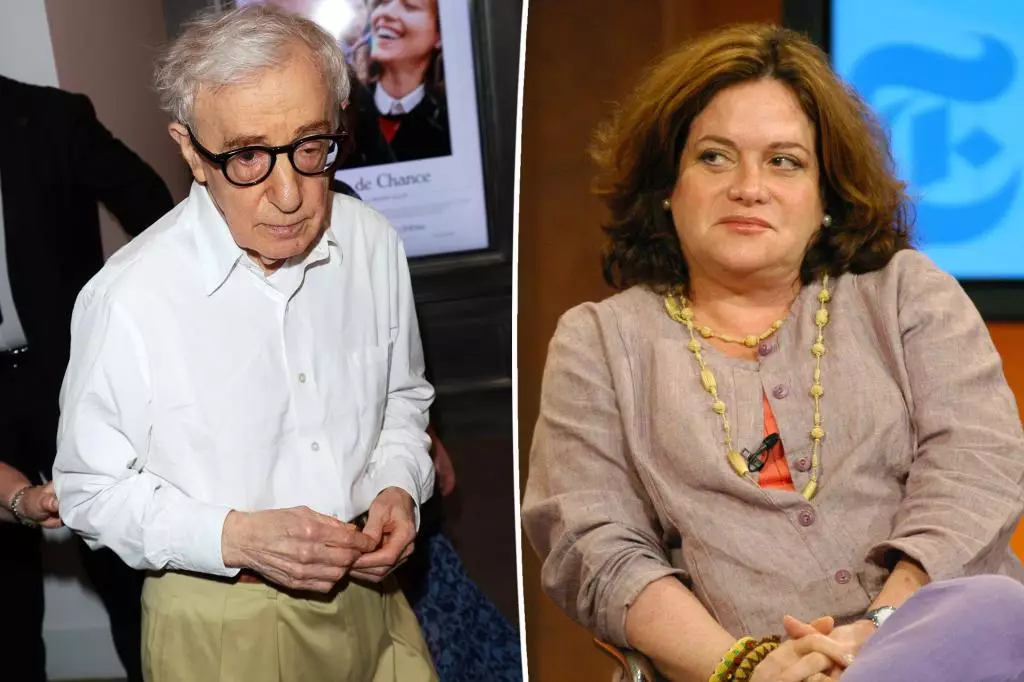In recent years, Woody Allen has all but disappeared from the public social scene, largely due to the resurfacing of allegations against him as part of the broader #MeToo movement. Therefore, it was met with considerable surprise when the director emerged at a recent gathering in the Upper East Side, hosted by literary figure Daphne Merkin. The event had a playful atmosphere, highlighting the often-celebrated yet tumultuous relationship between art and culture in contemporary society, particularly concerning figures like Allen, whose legacy is now under relentless scrutiny.
The soirée celebrated the launch of AFM, a literary magazine produced by Feeld, known for its unconventional dating philosophy that appeals to diverse sexual preferences. Featuring explicit categorizations and varied sexual configurations, the app embodies a shift towards more liberal attitudes regarding intimacy and relationships. Attendees mingled amidst the quirky ambiance created by the juxtaposition of Allen’s storied past with the magazine’s audacious theme.
This event highlighted the contrast between personal narratives and public perception, as Allen—who once thrived in these mingling moments—faced a frosty atmosphere, perhaps a reminder of the ongoing tension between celebrity and accountability in today’s society. Guests, including well-known figures such as Candace Bushnell and Molly Jong Fast, participated in an evening where the focus on contemporary sexuality and inclusivity wove through the discussions, leaving a lingering question: Can we ever separate the artist from their art?
The launch of AFM not only marked a significant moment for Feeld but also showcased contributions from renowned writers such as Jazmine Hughes and Susanna Moore. The magazine is a blend of provocative literary exploration and a fresh take on sexual discourse, which invites readers into an intersection of literature and modern relationships. In contrast to the traditional fare often seen in literary circles, this publication dares to traverse themes of eroticism and happiness in a manner that aligns seamlessly with the evolving cultural milieu.
The presence of Allen and his wife, Soon Yi Previn, stirred mixed emotions among attendees. While not endorsing the allegations he faces, they serve as reminders of the complex realities surrounding public figures—how artistry often collides with deeply personal narratives and controversies. Merkin’s association with the event adds another layer, given her contentious profile of Previn, reinforcing the notion of a meritocratic space where creativity exists alongside the judgement of moral standards.
As noted by contributors during the affair, the pursuit of happiness—a theme in the inaugural issue—evokes a broader dialogue about societal expectations and personal fulfillment. These discussions are increasingly relevant in an age where personal histories are thoroughly examined against the backdrop of their artistic contributions.
The event concluded with a sense of rich cultural dialogue, characterized by both celebration and critique. Although Allen’s appearance may have raised eyebrows, it also served as a poignant reminder of the conversations we need to continue having about accountability, morality, and the multifaceted aspirations that define both individuals and their creations in an ever-evolving discourse. The juxtaposition of literary finesse with uncomfortable realities encapsulates the heart of modern conversations that demand ongoing engagement and reflection.


Leave a Reply